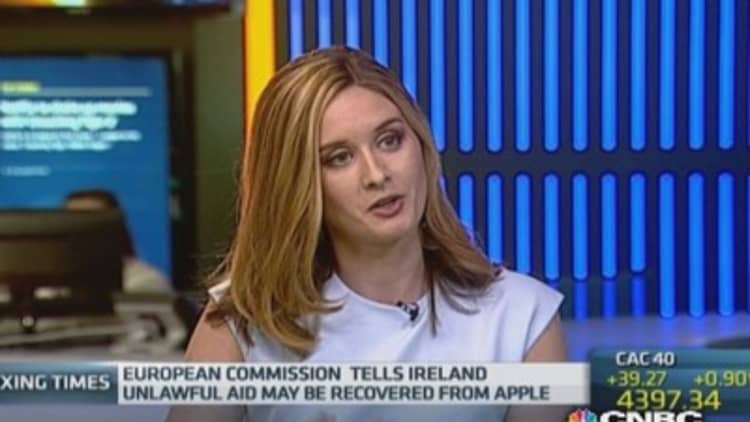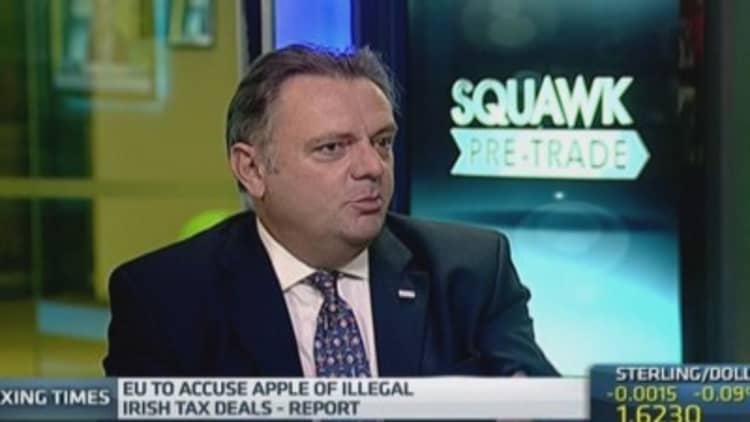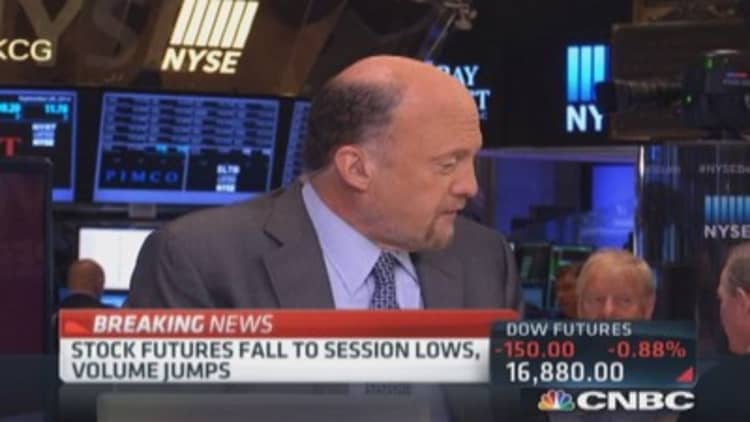
The European Commission has confirmed it believes Apple and Ireland breached guidelines on state aid over Apple's Irish tax arrangements.
In keeping with its zeitgeist-grabbing history, Apple was one of the first U.S. companies to lead the charge in relocating much of its earnings to Ireland.
This decision, which has led to the maker of the iPhone paying rates of around 2 percent tax in some years (compared to corporation 35 percent in the U.S.), has got it in hot water with European tax authorities. The Irish government and Apple have vehemently denied any wrongdoing.
Here, we outline what's been happening, and what the likely developments are.
What's the background to all of this?
The European Commission seems eager to make an example over perceived tax avoidance, and there are no targets more high-profile than Ireland and Apple.
Last year, Apple executives admitted at U.S. Senate hearings that the company had relocated $102 billion in cash offshore, as of last year, and that some of these earnings were "stateless" for tax reasons. It does pay some tax in the U.S. – around $6 billion in 2012.
The inquiry covers the years between 2004-14, although Apple first relocated its overseas operations to Ireland in 1980, and a meeting between Apple and Irish officials in 1991, which set up Apple's tax arrangements until 2007, is key to its controversial tax arrangements.
Essentially, it centers on whether the Irish tax authorities gave Apple a special deal to help the company avoid tax.

What's happening today?
The European Commission, the EU's executive arm, has published documents setting out the case against Apple's Irish tax arrangements, and they are critical. This is effectively like setting out the case for the prosecution, and does not mean that Apple will face fines any time soon.

What happens next?
It will take months before the European authorities make a ruling. After that, Ireland has 30 days to appeal if the ruling goes against it, and, if its appeal is unsuccessful, it can then take the issue to the European courts. The Irish government has already said it "is confident that there is no breach of state aid rules in this case", and seems to be preparing for a legal battle. So this could take many years to sort out. The EU monitors state aid, such as grants or tax relief, closely. Some state aid is illegal under its rules in cases where it distorts competition.
Will Apple or Ireland have to pay out?
This depends on the result of the proceedings. If the tax arrangements are found to be illegal, then Ireland may be forced to recover the funds. This could mean Apple has to pay back billions of euros to Irish authorities.
- By CNBC's Catherine Boyle.




